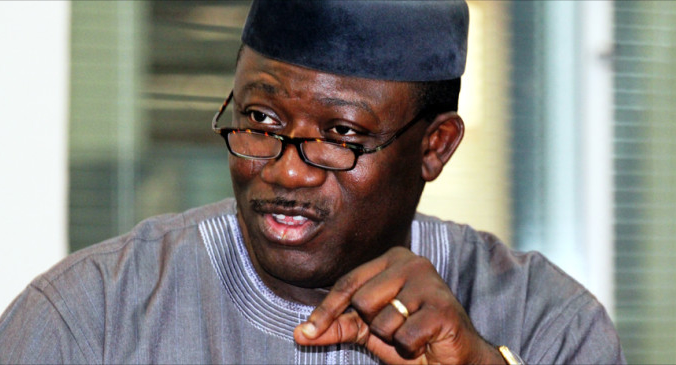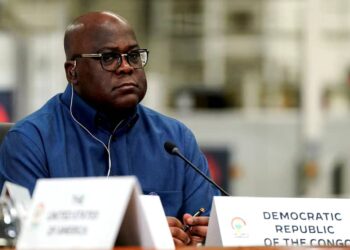By John Ikani
The Chairman of the Nigerian Governors Forum (NGF), Kayode Fayemi says it is important for states to incorporate components of the African Continental Free Trade Area (AfCFTA) agreement into various development plans in order for the continental trade pact to be successful in Nigeria.
Fayemi who is also the Governor of Ekiti State in Southwest Nigeria made this known during a three-day Subnational Strategy Workshop on AfCFTA organised by the National Action Committee on AfCFTA in partnership with the Nigeria Governors’ Forum (NGF).
According to him, trading under the banner of the AfCFTA would enhance the nation’s economy in the area of trade and investments expansion.
He went on to note that “for Nigeria to benefit fully from this opportunity and position itself competitively, the sub-national governments need to incorporate considerations of the agreement into our development plan.”
Identifying possible setbacks to incorporation of the AfCFTA agreement in Nigeria, Fayemi expressed concerns over the revenue generating mentality of the Nigerian Customs Service, the Nigerian Immigration Service and some regulatory agencies which he said might pose a serious threat to AfCFTA unless there is change of attitude.
“We have Customs, I don’t want to go into the details of the mentality of our Customs which focuses more on revenue generation than trade facilitation, and trade facilitation is what will make AfCFTA work better in our environment,” he emphasized.
“Yes, we all say under the Buhari’s administration as part of the ease of doing business competitive framework, we now allow visa at the point of entry, but those who have gone through that experience will also tell you that trying to bring people in on the visa at point of entry is an experience you will rather not have because is not as smooth as we claim it to be,” Fayemi said.
He emphasised on the need to maintain the country’s leading position in Africa’s integration by bringing down ideological limitations and artificial trade barriers.
“Nigeria has a tradition and history of being involved in regional integration both at the African Union level as well as being a foundation member of ECOWAS – our regional economic network. So the basis is already there for trade facilitation, for job creation, for expanding economic opportunities for our businesses and ultimately we will be the beneficiaries if we focus on this and look at the opportunities and challenges, and block the leakages that may make it difficult for us to be a full part in the AfCFTA,” Fayemi added.
He stated that Nigeria is already utilising regional trade opportunities, contributing approximately 76 percent of total trading volume in the ECOWAS region stressing that AfCFTA will only further enhance this trade, create new economic opportunities and spur economic and trade growth.
What you should know
The AfCFTA is a flagship project of the African Union’s Agenda 2063, a blueprint for attaining inclusive and sustainable development across the continent over the next 50 years.
It aims to boost intra-African trade by providing a comprehensive and mutually beneficial trade agreement among the member states, covering trade in goods and services, investment, intellectual property rights and competition policy.
Nigeria signed the Agreement on 7th July 2019 and after initial dilly-dallying, ratified it in November 2020 leading to the formal deposit of the Instrument of ratification before the 05 December 2020 submission deadline.



































